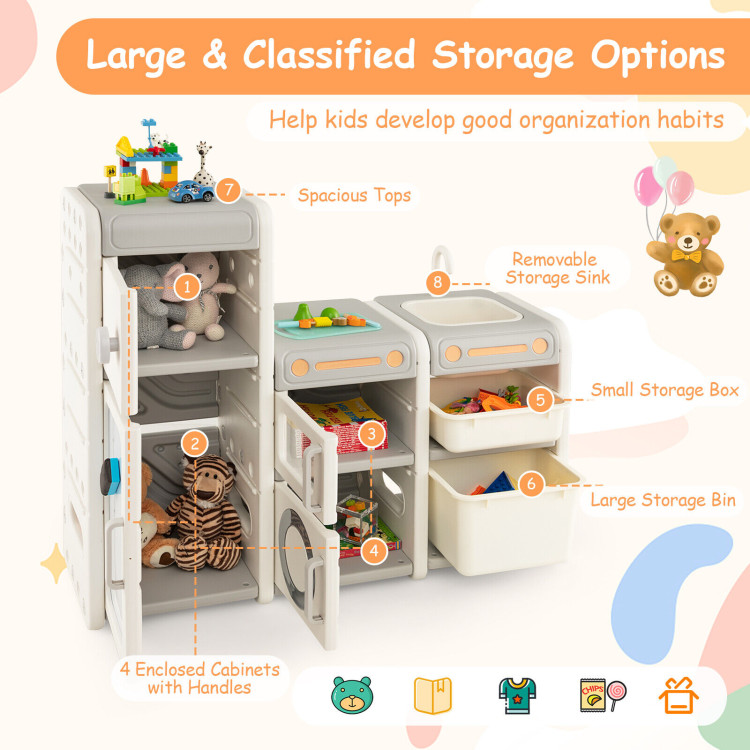5 Mind-Blowing Benefits of Reading You Need to Know
Psst! Want to Raise a Genius? (Hint: It Involves Bedtime Stories)
Did you ever wish to have a magic wand that could turn your child into a brilliant reader? Don’t worry; the secret lies in something simpler: reading aloud to your child every day. It sounds simple, but this daily ritual has more benefits than a superhero’s utility belt. We’ll explore how telling stories can shape your child’s future (and maybe even make you the most relaxed parent in town) by inspiring their imaginations and building their brains.
1. Supercharge Their Brainpower: How Reading Fuels Cognitive Development
Remember those epic bedtime stories your parents read to you? (Okay, you don’t, but stick with me here.) Those nightly adventures weren’t just entertainment; they built your brain! Reading aloud to your child is like giving their small minds a daily dose of super vitamins.
- Language Acquisition: When you talk to your child, you expose them to a rich tapestry of language, helping them grasp a broader vocabulary, sentence structure, and accents. You give them an edge as if they were competing in the language Olympics! Did you know that children who read regularly start kindergarten with an average vocabulary of 1,500 to 2,000 words? It is compared to 500 words for those who aren’t. That’s a huge advantage. It is not enough to hear how many children hear; reading aloud exposes them to various words. It helps them develop their vocabulary and improve their communication skills.
- Learning Growth: Reading isn’t just about words; it’s about weaving them into captivating narratives. In addition to boosting memory, attention span, and critical thinking, following a story, remembering characters, and understanding plot developments enhance crucial cognitive skills. A study by the University of Edinburgh found that children who were read to regularly at five had significantly higher cognitive skills at seven. It’s like building a mental jungle gym for their brains. Another study published in the journal Pediatrics found that reading aloud to young children activates brain areas associated with language and imagery. It is even before they can speak or write. This early brain stimulation can have a lasting impact on their cognitive development.
- School Readiness: By fostering pre-literacy skills and a love of learning, you’re handing your child a golden ticket to academic success. It’s essential that they have a strong language foundation, are familiar with books, and are eager to explore different ideas before entering the classroom. According to a National Early Literacy Panel report, children who read regularly display a positive attitude toward reading and writing. They also perform better on literacy assessments. Similarly, they found that reading at an early age strongly correlated with the later development of comprehension skills.
2. Beyond Words: Nurturing Emotional Intelligence Through Stories
Books aren’t just portals to fantastical worlds but powerful tools for building emotional intelligence. When we read aloud to our children, we’re not just sharing words but experiences, emotions, and perspectives.
- Empathy and Understanding: Imagine stepping into the shoes of a character facing a challenge and feeling their sadness, joy, and fear. That’s the power of stories! Children gain empathy and compassion by experiencing the world through their different eyes. According to a study published in Science, reading literature (as opposed to popular or non-fiction) improved empathy and social perception performance. The study suggests that literary fiction encourages readers to engage with characters more deeply, considering their motivations, emotions, and perspectives. It leads to increased empathy and understanding.
- Social-Emotional Skills: Children’s book characters face various social and mental challenges, from making and keeping friends to dealing with bullies to overcoming fears. Think of these stories as a dress rehearsal for real life. They offer valuable lessons about navigating human relationships and developing emotional resilience. Children who read books about characters overcoming challenges are more likely to exhibit prosocial behaviour, such as helping others and sharing. According to a study by the University of York, Children can also gain emotional vocabulary and healthy ways of expressing their feelings by reading about characters who experience a range of emotions.
- Bonding and Connection: Snuggling up with your child and telling them a story is magical. It is a moment of connection, a shared experience that strengthens your bond. For parents and children, this intimate time together can become a cherished ritual, a source of comfort and joy. Research has shown that reading aloud to children can reduce stress levels and promote well-being. Creating lasting memories with your child can also strengthen your relationship with them.
3. Fostering Creativity and Curiosity: Unlocking Imagination
Imagine how a cardboard box could become a spaceship, a blanket, or a magical portal when you were a kid. That’s the power of imagination; reading aloud gives your child the key.
- Imagination and Creativity: Children are transported to faraway lands, taught to speak animals, and encouraged to believe in the impossible through stories. Thus, their imaginations are sparked, leading to creative problem-solving and thinking. A child learns to think outside the box, dream big, and see the world differently. Study results by the National Endowment for the Arts indicate that children who engage in imaginative activities, such as reading and storytelling, score higher on creativity tests. They are likelier to be curious, adaptable, and persistent.
- Exploration and Curiosity: Books introduce children to new cultures, historical events, and scientific concepts, sparking their curiosity and thirst for knowledge. In addition to asking questions, they explore creative ideas and develop a lifelong love of learning. According to a National Literacy Trust study, children passionate about reading are more likely to have a positive attitude toward learning and achieve higher academic success. Moreover, they are more likely to pursue their interests independently and be interested in a broader range of subjects.
- Lifelong Learning: Early reading cultivates a lifelong love of reading and learning. Children who are read to regularly are more likely to become avid readers, which will set the stage for future academic and personal success. This passion can translate into tremendous success in school, careers, and personal lives. They seek information, explore creative ideas, and engage with the world around them. Reading for pleasure has improved cognitive function, increased empathy, and strengthened social connections.
4. The Benefits of Language and Literacy: Building a Foundation
Aloud reading is like building a skyscraper – it helps your child develop a strong foundation for language and literacy skills.
- Expansion of vocabulary: Reading aloud helps children learn a broader vocabulary than usual. They gain a deeper understanding of the world and have better communication skills. A child who is regularly taught has a more extensive vocabulary and a better reading ability. Ohio State University researchers found that children who listened to two or more times a week had significantly larger vocabularies than those who did not.
- Phonological Awareness: Storytelling brings rhythm and sounds to life. Reading aloud helps children develop phonological awareness, a crucial skill for writing and reading. Phonological awareness is highly correlated with reading success for young children. It allows them to identify and manipulate word sounds, establishing the foundation for reading and writing. Phonological awareness training significantly improved children’s reading and spelling skills in a meta-analysis of 235 studies.
- Early Literacy Skills: By reading aloud, a child develops pre-language skills, learns about story structure, and recognizes letters and sounds. Early literacy skills are crucial for reading and writing. They include concepts such as print awareness (understanding that print conveys meaning) and text direction (reading left to right). In a study conducted by the National Reading Panel, young children can benefit from explicit instruction in early literacy skills, such as phonological awareness and print awareness.
5. Beyond the Book: Extending the Learning Experience
Reading aloud is just the beginning! Here’s how to take learning to the next level:
Interactive Reading: Read the story in a way that keeps them engaged and teaches them critical thinking skills. Ask questions, discuss the illustrations, and encourage them to make predictions. The next time you read a book, you may ask your child, “What do you think will happen?” or “How do you think the character feels?” You should encourage your child to participate by pointing to pictures, turning pages, or acting out parts of the story.
- Real-World Connections: Connect your stories to your child’s everyday life. Visit a zoo or farm if you read an animal book. If you read a story about a different culture, try cooking a traditional dish from that country. Making these real-world connections helps children understand the concepts in the book and makes learning more meaningful. Books can also spark conversations about meaningful topics like sharing, kindness, and diversity.
- Create a Reading Routine: Create a routine for reading aloud every day. Whether it’s a bedtime story, a cosy afternoon snuggle, or a particular weekend tradition, it will help make reading a cherished habit. You can even create a unique reading nook with comfy pillows and blankets to make it extra inviting. Choose a time when your child is relaxed and receptive to reading. Don’t be afraid to be flexible. It is okay to skip a day or shorten reading time if your child is tired or not in the mood.
Tips for Reading Aloud Like a Pro
Now that you’re convinced of the power of reading aloud let’s take it up a notch. Here are some tips to make your reading time more engaging and effective:
- Choose the Right Books: Select books appropriate for your child’s age and interests. Be bold and introduce them to various genres, from classic fairy tales to contemporary picture books to non-fiction titles about their favourite topics.
- Use Different Voices: Use different voices and expressions to bring the characters to life. This helps children visualize the story and stay engaged.
- Ask Questions: Encourage your child to think critically about the story by asking questions like “What do you think will happen next?” or “Why do you believe the character did that?”
- Make it interactive: Use props, puppets, or costumes to make the story more interactive. You can also encourage your child to act out parts of the story or draw pictures based on their hearing.
- Be enthusiastic: Your enthusiasm is contagious! If you’re excited about the story, your child will be too.
- Make it a Special Time: Create a cosy and comfortable reading environment. Please turn off the TV and other distractions, and snuggle up with your child in their favourite spot.
- Don’t Give Up: Keep reading even if your child doesn’t seem interested initially! It may take some time to develop a love of books.
Reading Aloud Benefits: A Lifetime of Learning
Children who are read aloud regularly are more likely to become lifelong readers. This can lead to improved academic performance, career success, and well-being as they grow up. In addition to developing empathy, critical thinking, and communication skills, reading can help children develop vital life skills.
Make time for stories, snuggle up with your child, and watch the magic happen when you read aloud to them. It will be a gift they will cherish for a lifetime.
Fueling Young Minds: Our Favorite Books for Little Bookworms
Choosing the right books can make all the difference in sparking a lifelong love of reading. Here are some of our top picks for different age groups, handpicked to engage young minds and nurture growing imaginations:
For Babies & Toddlers (0-2 years):
- Hello, Baby Animals! – This delightful board book introduces little ones to various adorable baby animals with vibrant illustrations and simple text. Perfect for developing early language skills and fostering a love of the animal world.
- Hello, My World! – Explore the world around you with this engaging board book that features everyday objects and scenes. This book helps toddlers build vocabulary and connect with their surroundings, from playful puppies to colourful cars.
- Hello, Ocean Friends! – Dive into the underwater world with this captivating board book introducing little ones to fascinating ocean creatures. With its bright colours and simple text, this book is perfect for sparking curiosity and fostering a love of marine life.
- Goodnight Moon – A timeless classic, Goodnight Moon is a soothing bedtime story that gently guides little ones to sleep. Its rhythmic text and calming illustrations create a peaceful atmosphere perfect for ending the day.
- The Very Hungry Caterpillar – This beloved story follows the journey of a ravenous caterpillar as he eats his way through various foods before transforming into a beautiful butterfly. With its colourful illustrations and interactive elements, this book is a feast for the senses and a delightful introduction to the life cycle of a butterfly.
For Preschoolers (3-5 years):
- Corduroy – This heartwarming story about a teddy bear searching for a missing button teaches valuable friendship, acceptance, and self-love lessons. Corduroy’s adventures will capture the hearts of young readers and remind them that everyone deserves a friend.
- The Snowy Day – Join Peter as he explores the wonders of a snowy day, from building snowmen to sledging down hills. This beautifully illustrated book captures the joy and wonder of childhood and celebrates the simple pleasures of a winter day.
- Click, Clack, Moo: Cows That Type – When Farmer Brown’s cows find a typewriter, they demand better working conditions! This hilarious story is a clever introduction to negotiation and compromise while keeping young readers entertained with its witty dialogue and charming illustrations.
- The Way I Feel – This colourful book helps children identify and understand various emotions, from happiness and sadness to anger and fear. With its simple text and expressive illustrations, this book provides a valuable tool for developing emotional literacy.
- When Sophie Gets Angry – This powerful story follows Sophie as she learns to manage her anger healthily. With its vibrant illustrations and relatable storyline, this book offers a valuable resource for helping children cope with strong emotions.
For Early Elementary (6-8 years):
- Frog and Toad Are Friends – This collection of heartwarming stories celebrates the enduring friendship between Frog and Toad as they navigate everyday adventures with humour and kindness. These simple yet profound stories teach valuable lessons about friendship, empathy, and cherishing those we love.
- The Magic School Bus – Join Ms. Frizzle and her class on extraordinary field trips as they explore the human body, the solar system, and everything in between! This engaging series combines science and adventure, making learning fun and accessible for young readers.
- Who Would Win? – Pitting two fierce creatures against each other, this exciting series explores the strengths and weaknesses of different animals, sparking curiosity and igniting a passion for the natural world. With its detailed illustrations and fascinating facts, this series is perfect for budding scientists and animal enthusiasts.
- The Day You Begin – This beautifully written and illustrated book celebrates the unique qualities that make each of us special. It encourages children to embrace their individuality and find courage in their differences, reminding them they are never truly alone.
- Last Stop on Market Street – CJ and his Nana embark on a bus ride through their city, encountering diverse characters and discovering the beauty in everyday moments. This heartwarming story celebrates community, kindness, and the importance of appreciating the world around us.
FAQs
You bet! While those shows can be great, more is needed to replace the magic of reading together. Think of it like this: TV is a spectator sport, but reading is an interactive adventure. When you read aloud, you’re not just passively absorbing information; you’re actively engaging with the story, building vocabulary, and strengthening those all-important brain connections. Snuggling up with a book creates a special bond that no screen can replicate.
Ah, the age-old struggle! Don’t worry, you’re not alone. Try making reading a fun part of your routine, not a chore. Create a cosy reading nook with comfy pillows and blankets. Let your child choose books that spark their interest (even if it’s about their favourite video game characters!). Most importantly, I want to be a reading role model. Let them see you enjoying a book; they might follow your lead.
Not! What matters most is your enthusiasm and time sharing stories with your child. Don’t worry about reading perfectly; relax and enjoy the experience together. You can even turn it into a learning opportunity for both of you, sounding out words together and discovering new things.
Your local library is a treasure trove of excellent books! Librarians are experts at finding the perfect reads for every age and interest. You can also check out online resources like Common Sense Media for age-appropriate recommendations. And don’t be afraid to let your child lead the way. If they’re obsessed with dinosaurs, find books about dinosaurs! The most important thing is choosing books that spark their curiosity and excite them to read.
I get it, mama! We’re all juggling a million things. But even a few minutes of reading aloud can make a huge difference. Try incorporating it into your daily routine: read a book during breakfast, snuggle up for a story before naptime, or make it a particular part of your bedtime ritual. You might be surprised how those little moments create a lifelong love of reading.
Related Posts















































































